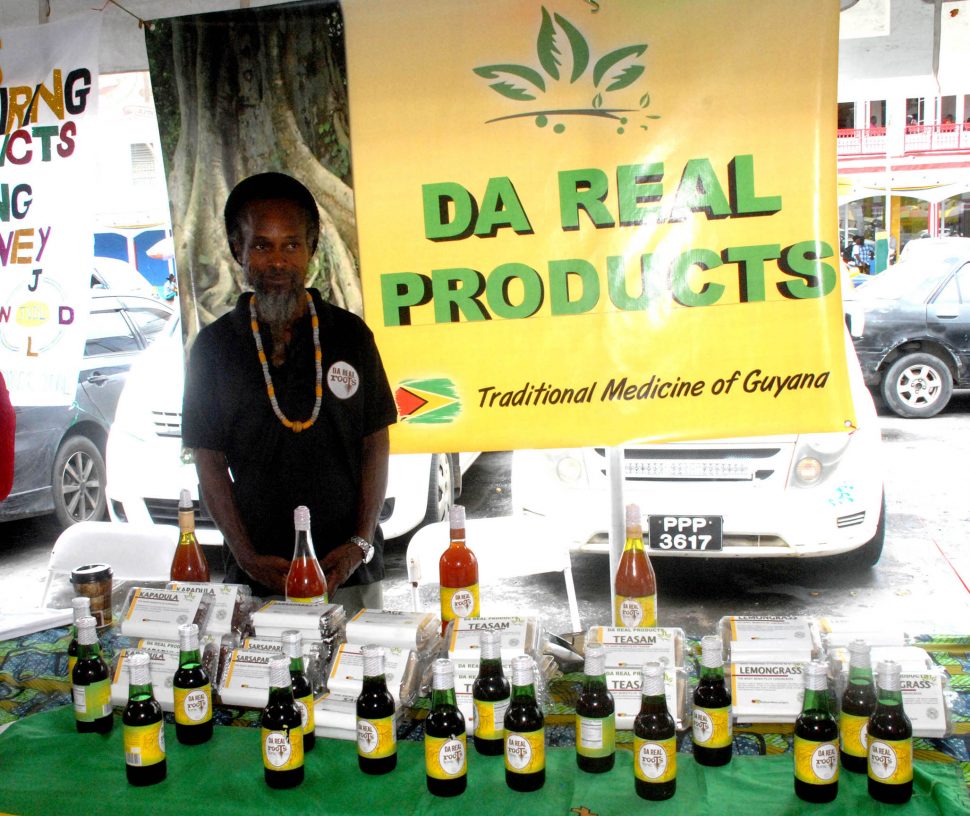When you tell Michael Nunes that agro processing has become one of the fastest growing sub-sectors in Guyana’s agricultural sector and that modest quantities of locally manufactured products are beginning to find their way onto external markets, the nonplussed expression on his small, chiseled face does not change one iota. “The industry needs help,” he says. “We need institutions that can support us financially and technically. Agro processing is an opportunity for the small man, and we need help.” It is as if, having secured an opportunity to engage the media on the subject he is desperate to ensure that the message reaches the right ears.
At 62, the diminutive Rastafarian can still remember a time more than half a century ago when ‘bush tea’ was the staple beverage in his mother’s home, the exception being Sundays when she ‘spoilt’ the family with cups of hot chocolate, the fat sitting atop the steaming liquid. These days, he makes a living with the ‘inheritance’ his mother left him. Besides the cashew nuts and pineapples which he cultivates at Kairuni on the Soesdyke/Linden Highway, his other crops include some of those same ‘herbs,’ that his mother brewed all those years ago. Only these days the herbs are gathered and dried and afterwards packaged as leaves or bark and offered with their printed recommendations as ‘remedies’ for an array of ailments ranging from backaches to diabetes. The herbs, Sage, Teasum, Lemon Grass, and Sarsaparilla are sun-dried (while the Kapadulla bark is purchased from Amerindian farmers) and stored. Afterwards, Michael packages these and markets them as beverages, the packaging providing details of the particular health benefits that each herb brings.

